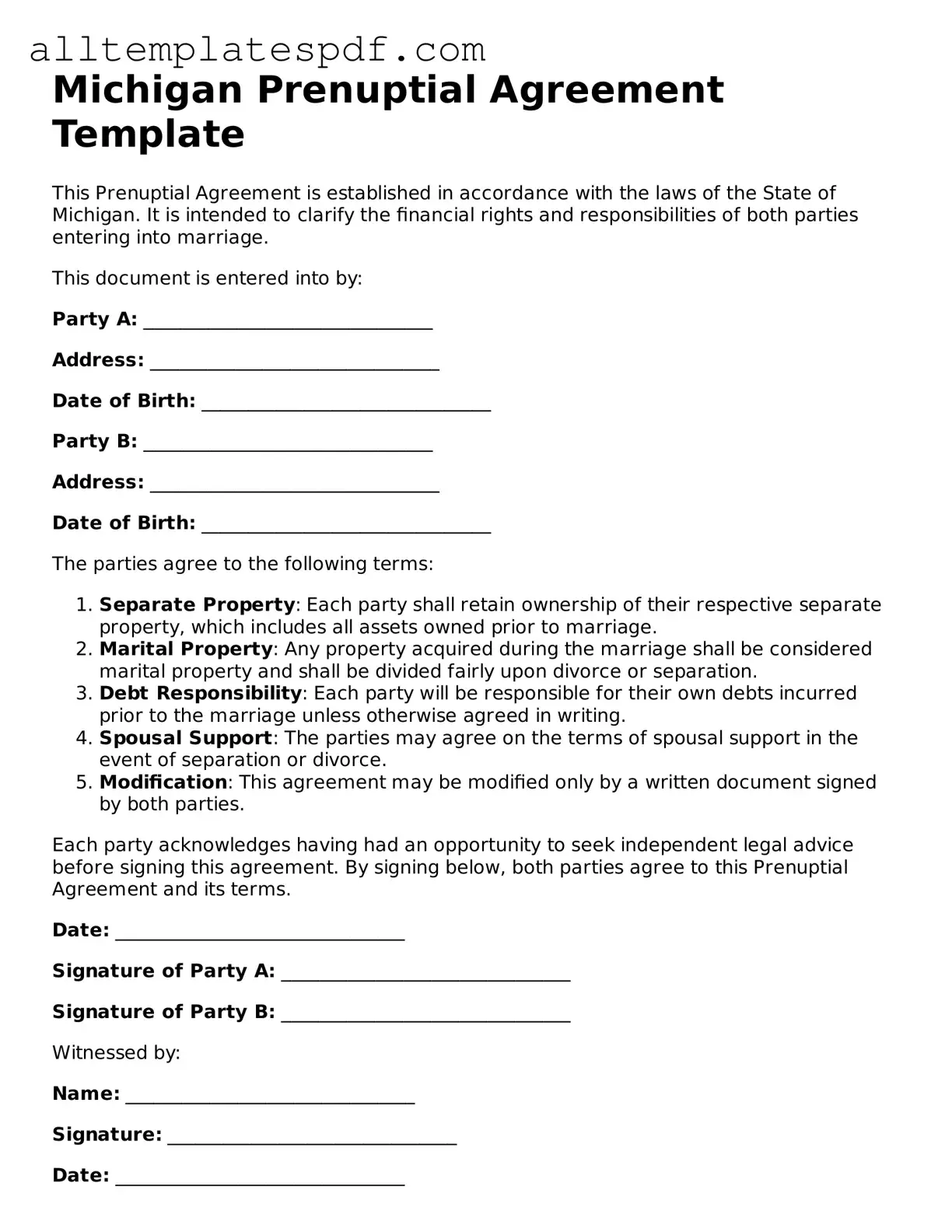Blank Prenuptial Agreement Template for the State of Michigan
A Michigan Prenuptial Agreement form is a legal document that outlines the financial and property rights of each spouse in the event of a divorce or separation. This agreement helps couples clarify their expectations and protect their individual assets before marriage. To get started on your own prenuptial agreement, fill out the form by clicking the button below.
Open Editor

Blank Prenuptial Agreement Template for the State of Michigan
Open Editor
Fast and easy form completion
Complete Prenuptial Agreement digitally — fast and easy.
Open Editor
or
↓ Prenuptial Agreement PDF Form
